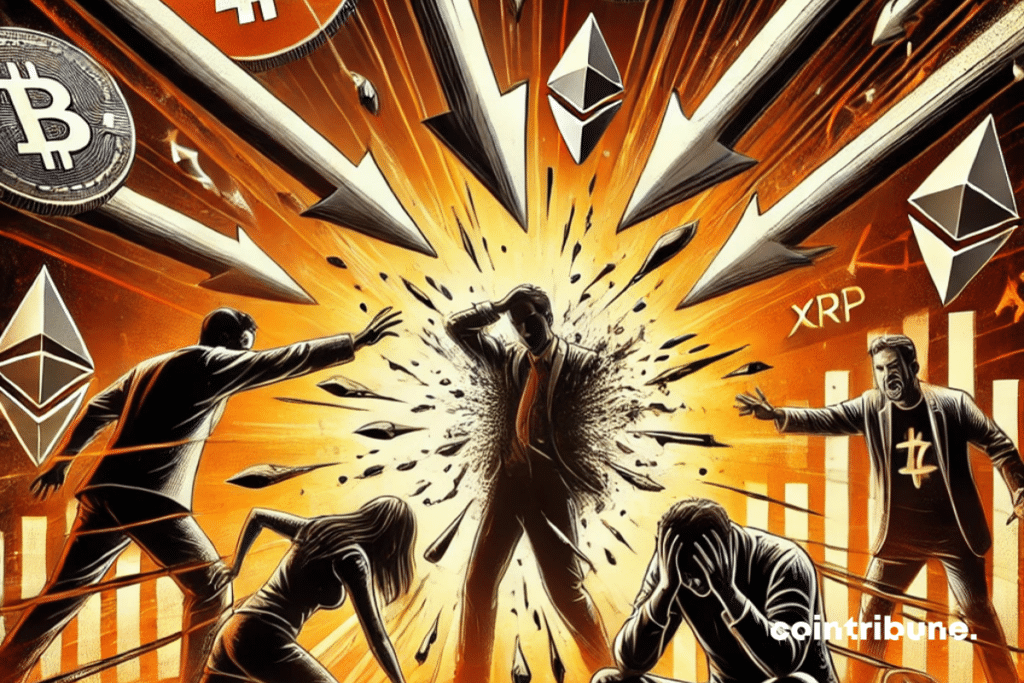6:00 am ▪
5
min reading ▪ acc
The dispute between the SEC and crypto companies seems endless. Today, Ripple’s XRP finds itself at the heart of hostilities once again. Bitnomial, a Chicago-based cryptocurrency exchange, is accusing the SEC of expanding its jurisdiction by requiring increased compliance with its XRP futures contracts. The case is reigniting tensions over XRP’s status as a security, and the crypto sector is beginning to worry about wider implications for all digital assets.

Bitnomial Challenges SEC: Conflict of Jurisdictions
Bitnomial, regulated by the Commodity Futures Trading Commission (CFTC), recently applied for permission to launch dollar-backed XRP crypto futures contracts.
However, the initiative quickly caught the attention of the SEC. The agency warned Bitnomial that without registration meeting its requirements, offering these contracts could violate federal securities laws. Bitnomial disputes this position, arguing that the SEC is overstepping its rights by classifying the XRP crypto as a security. However, Ripple achieved victory.
Behind this confrontation is the issue of jurisdiction. According to Bitnomial, the CFTC is supposed to oversee futures contracts, while the SEC regulates securities.
By labeling XRP an “investment contract,” the SEC is attempting to bring these futures contracts under its own control, a step closer to more aggressive regulation of the entire industry.
For Bitnomial, this move by the SEC amounts to an attempt to take control of not only XRP, but potentially all digital assets.
In response, Bitnomial filed suit in hopes of obtaining a court declaration that would redefine the classification of these contracts.
If the exchange wins its case, it could set a strong legal precedent, not only for XRP, but for all other cryptoassets likely to suffer the same fate. This affair thus takes on a symbolic dimension, the fight for the autonomy of the sector in the face of increasingly intrusive regulation.
The crypto sector is facing new uncertainty
This dispute is not limited to XRP. In fact, the potential implications for the entire sector are profound.
If the SEC succeeds in recognizing XRP as a security in this context, it would pave the way for similar regulations for other cryptocurrencies, a worrying prospect for investors and market participants.
Companies like Crypto.com have also already filed lawsuits against the SEC, denouncing the agency’s overbroad and baseless approach.
The impact of this case is felt in the current atmosphere in the crypto market. Investors, alarmed by these repeated legal battles, are beginning to lose confidence and selling moves are accelerating.
Regulatory uncertainty casts doubt on the soundness of crypto investments, leading to increased volatility. The destabilization of XRP is spreading to other assets as investors fear more SEC attacks on other projects.
For cryptocurrency defenders, these actions seem counterproductive. Instead of clarifying the rules, the SEC is applying pressure that will ultimately erode the industry’s credibility. Influential figures in the sector, such as the CEO of Bitnomial, believe that these decisions hurt innovation and hinder the adoption of cryptocurrencies. For them, it is a fight not only for Bitnomial or Ripple, but for the entire crypto ecosystem. Meanwhile, China is collapsing.
Maximize your Cointribune experience with our “Read and Earn” program! Earn points for every article you read and get access to exclusive rewards. Register now and start reaping the benefits.

Fascinated by Bitcoin since 2017, Evariste continued to research the topic. If his first interest was trading, now he is actively trying to understand all the developments focused on cryptocurrencies. As an editor, he strives to consistently deliver high-quality work that reflects the state of the industry as a whole.
DISCLAIMER OF LIABILITY
The comments and opinions expressed in this article are solely those of the author and should not be considered investment advice. Before making any investment decision, do your own research.

